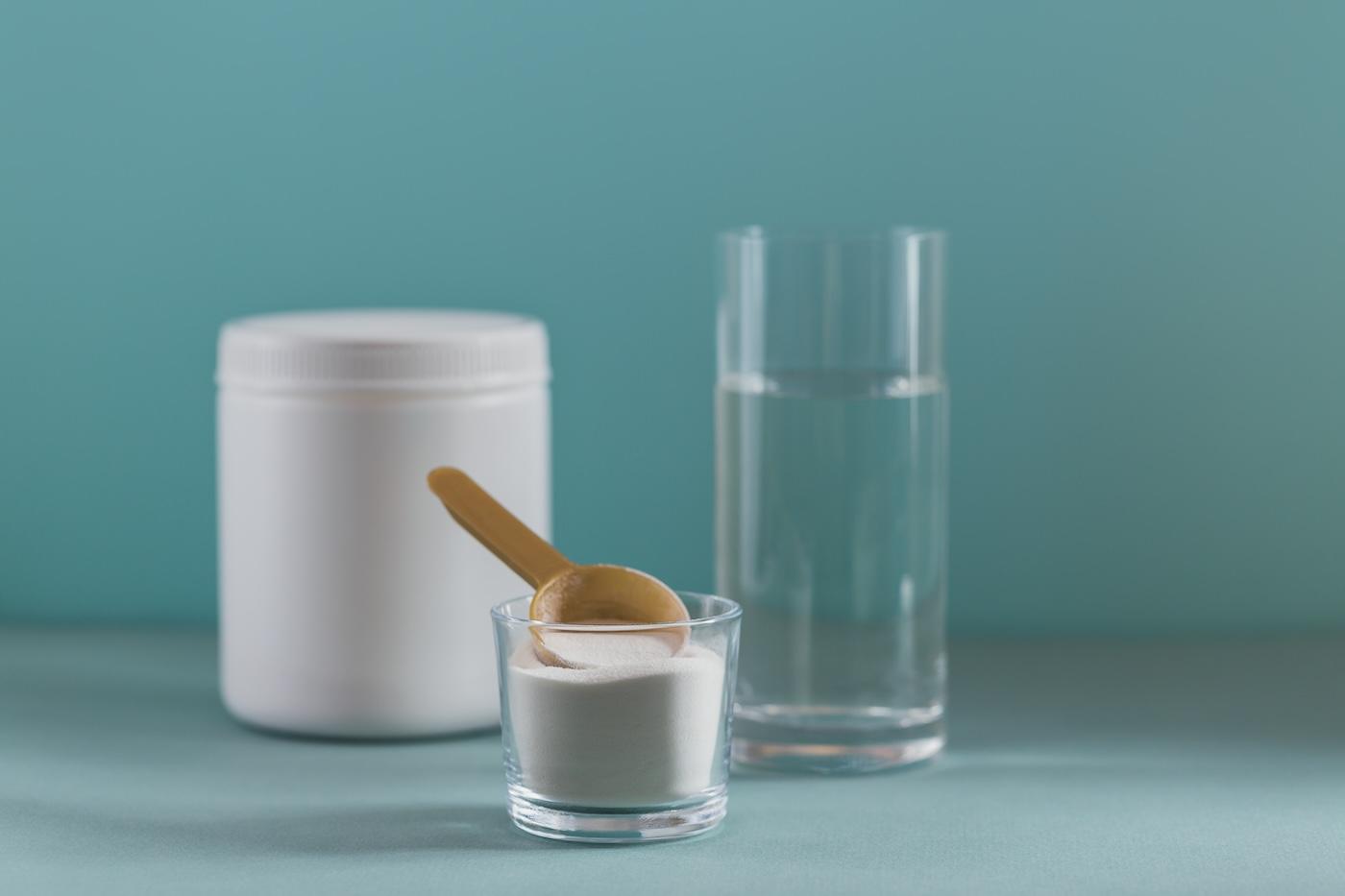PREGNANCY
Everything You Need to Know Glucose Screening in Pregnancy
Wondering how to pass your glucose test?

Written by
Holly Pevzner

There’s no shortage of doctor’s appointments and tests that go on during your 9 months of pregnancy. And one of the more memorable pregnancy checks among them is the second trimester glucose screening test, which involves gulping down a notoriously sweet, often neon-hued liquid. It may be kinda gross, but according to pediatrician Dr. Harvey Karp, the glucose screen is “one of the most important tests of your pregnancy.” Learn why the glucose screening test is needed—and what to expect when you take the test.
What is a glucose screening?
Your doctor or midwife may refer to your glucose screening test as the oral glucose tolerance test (OGTT), the glucose challenge test, the glucose tolerance test, or a gestational diabetes screening. These tests are all used to measure the level of glucose (aka sugar) present in your blood. If your glucose screening shows that your blood sugar level is high, it may be a sign of gestational diabetes, which can cause complications during pregnancy such as preeclampsia. (Between 2 and 10% of pregnancies in America are affected by gestational diabetes.)
This test should not be confused with a urine glucose test (also called urine sugar test, Glucosuria test, and Glycosuria test)—the pee-in-a-cup screener that happens at your first prenatal appointment. If high levels of glucose are detected in your urine early on and/or you’re considered high-risk for diabetes, your provider may recommend additional testing, including a glucose tolerance test earlier than week 24 of your pregnancy.
When should I do a blood glucose test in pregnancy?
In most cases, screening for gestational diabetes with a glucose test occurs between 24 and 28 weeks pregnant, according to American College of Obstetricians and Gynecologists (ACOG). If you have risk factors for gestational diabetes, however, your blood sugar will likely be tested earlier in pregnancy.
Some of those gestational diabetes risk factors include:
- Gestational diabetes in an earlier pregnancy
- Prior baby weighing more than 9 pounds at birth
- High levels of glucose detected in prenatal urine test
- Family history of diabetes
- BMI of 30 or higher
- High blood pressure
- Older than 35
- Polycystic ovary syndrome (PCOS) diagnosis
- Metabolic syndrome diagnosis
- Being Black, Hispanic, American Indian, or Asian American
Types of Glucose Screening Tests in Pregnancy
There are two types of glucose tests and both measure how well your body can process a larger amount of sugar. The first is a screening test, while the second is used to diagnose gestational diabetes.
Glucose Challenge Test
This glucose screener is the shorter test of the two and is sometimes dubbed the one-hour glucose tolerance test. For this screening test you quickly (within 5 minutes) drink a super-sugary beverage (Glucola). Then, one hour later, your blood is drawn to measure your glucose levels. If your glucose challenge test comes back normal, you are all done with your glucose screenings! If your glucose challenge test results show high blood sugar levels, then a glucose tolerance test will be ordered next.
Glucose Tolerance Test
This test is used to diagnose gestational diabetes and is sometimes referred to as the three-hour glucose test or the oral glucose tolerance test (OGTT) This test involves fasting for eight hours, getting your blood drawn, then quickly drinking the same sugary beverage as before. You will then get your blood drawn every hour for two to three hours.
Are there any alternative glucose screening tests?
There are, but the oral glucose tolerance test is considered the gold standard of glucose testing.
- Continuous glucose monitoring (CGM): Here, you wear a device that measures your blood sugar levels throughout the day and night. This type of testing—done for one week between 24 and 28 weeks of pregnancy—is recommended for parents-to-be who’ve undergone bariatric surgery. For these individuals, the standard oral glucose tolerance test drink is not well-tolerated. Worse, the test yields inaccurate results and puts these expecting at an increased risk for reactive hypoglycemia, where blood sugar drops after a meal.
- Hemoglobin A1c (HbA1c): HbA1c is a blood test that can show what your average blood sugar levels were over the past two to three months. While it can be used to screen pre-existing diabetes in early pregnancy, it is not recommended for diagnosing gestational diabetes. Research has shown that this glucose screening test is less reliable than oral glucose tolerance testing (OGTT).
Is the glucose drink safe for pregnancy?
Yes. In fact, most parents-to-be don’t experience any side effects from drinking the glucose solution. Some, however, may feel nauseated, lightheaded, or even sweaty from the “sugar rush,” but serious side effects are exceedingly rare. Still, many expecting parents are nervous about the safety of glucose drinks! One study found that the test’s perceived “harmful effects for them and their babies” was the number one reason pregnant folks refused the test.
While drinking down a beverage that contains dextrose (sugar), citric acid, sodium benzoate, artificial flavoring and coloring, and purified water doesn’t seem healthy or appetizing, remember, it’s a one- or possibly two-time occurrence in your pregnancy. You are not knocking back a six-pack regularly! Think about it like this: It’s far riskier to let gestational diabetes go undetected than having a super-sugary drink.
Are there glucose drink alternatives?
Yes. For those who may have trouble tolerating the glucose screening test drink, you can ask your care provider about high-glucose substitutes. There’s some limited research around the effectiveness of jelly beans or Twizzlers as a glucose screening test drink alternative. In addition, some physicians and midwives suggest bananas, apple juice, grape juice, orange juice, or Fresh Test, which is billed as a more natural glucose beverage.
How to Prepare for the Glucose Challenge (1-Hour) Test
Good news! You don’t really need to change your diet prior to taking the glucose challenge test. However, for best results, avoid high-sugar foods for breakfast that day. That means, pancakes, donuts, sugary cereal, and juice will need to wait! If your test is in the afternoon, the same rules apply to your lunch. Keep in mind that carb-y foods like white bread and pasta count as sugar.
Before your visit, ask your care provider if any medicines you take, like those containing aspirin, could affect your glucose test results. Other than that, simply arrive at your prenatal appointment ready to imbibe Glucola, the glucose screening test drink that contains a concentrated glucose solution (50 g of glucose dissolved in 250 to 300 ml of water). Dr. Karp suggests calling ahead and asking for your Glucola to be refrigerated beforehand—it makes it easier to drink!
How to Prepare for the Glucose Tolerance Challenge (3-Hour) Test
If your glucose challenge yields high numbers, you’ll have to take the three-hour glucose tolerance challenge at a later date. This glucose test requires more prep than your first. Here’s how to prepare:
- Keep your diet status quo. Maintain a normal, balanced diet, including at least 150 grams of carbohydrates a day for the three days leading up to your glucose test.
- Check your meds. Ask your doctor or midwife if medications or supplements could interfere with your results.
- Schedule smart. Aim to take your glucose challenge test in the morning so you’ll only have to skip one meal.
- Call ahead. Ask your provider to refrigerate the Glucola before you arrive to make the sweet drink more palatable.
- Fast beforehand. Do not eat or drink anything at least eight to 12 hours before taking the glucose test. Sips of water are usually a-okay, but refrain from eating or drinking until the last blood sample is taken.
- Bring something to do. Since you won’t be allowed to leave your care provider’s office between blood draws, it’s a good idea to bring along a book, a tablet, or something else to keep you occupied.
Once you’re at your doctor or midwife’s office and your blood is taken, you’ll have the glucose screening test drink, which is 75 g of glucose dissolved in 250 to 300 ml of water. Experts recommended you take the test while lying down or sitting.
Glucose Screening Test Results
Some healthcare providers have different “normal” ranges, but the numbers below are generally considered “passing grades.”
Normal Glucose Screening Results
- Normal glucose challenge test results: Usually, a normal glucose challenge test result is when blood sugar level is lower than 140 mg/dL. This means you do not have gestational diabetes and don’t need further testing!
- Normal glucose tolerance test: There are several “passing” scores here because your blood sugar levels are tested periodically for three hours:
Fasting blood sugar: Lower than 95 mg/dL
After one hour: Lower than 180 mg/dL
After two hours: Lower than 155 mg/dL
After three hours: Lower than 140 mg/dL
High Glucose Screening Results
- High glucose challenge results: If your glucose level is 140 mg/dL or higher, there’s a good chance your healthcare provider will recommend you get the three-hour glucose tolerance screener to test for gestational diabetes. It’s possible to fail your glucose screening but pass a glucose tolerance test.
- High glucose tolerance results: More than one high blood glucose results indicates gestational diabetes:
Fasting blood sugar: 95 mg/dL or higher
After one hour: 180 mg/dL or higher
After two hours: 155 mg/dL or higher
After three hours: 140 mg/dL or higher
What happens if I fail my three-hour glucose test?
If you fail your three-hour glucose tolerance test, you will most likely be diagnosed with gestational diabetes. Often, you can manage your gestational diabetes through healthy eating, regular exercise, and checking your blood sugar as directed by your care provider. However, some will require insulin as well. No matter how you treat your gestational diabetes, it’s recommended that you get tested for diabetes 6 to 12 weeks after your baby is born—and then every 1 to 3 years thereafter. But this does not mean you are destined for a lifetime of diabetes!
Gestational diabetes typically goes away soon after delivery.
Can I refuse the glucose screening test?
While it’s highly recommended you get a glucose screening test during pregnancy, you can consider asking your healthcare provider about skipping the glucose screen if you:
- Are under 25 years old and your BMI is under 25
- Have no family history of diabetes
- Had no diabetes in previous pregnancies
- Belong to an ethnic group that has a low risk of diabetes
- Have never had an abnormal blood glucose test result
More Pregnancy Need-to-Knows:
- Prenatal Genetic Testing: Which Tests Do You Need?
- Now’s the Time to Brush Up on Newborn Sleep Tips!
- What to Know About Choosing Prenatal Vitamins
- A Quick Guide to Pregnancy Discharge
- Natural Ways to Relieve Pregnancy Heartburn
Disclaimer: The information on our site is NOT medical advice for any specific person or condition. It is only meant as general information. If you have any medical questions and concerns about your child or yourself, please contact your health provider.
SHARE THIS ARTICLE
MOST LOVED
Sleepytime Sidekicks
More on Pregnancy
About Holly Pevzner
Holly Pevzner is Happiest Baby’s Staff Writer. She specializes in creating parenting, pregnancy, health, nutrition, and family travel content. Her work—including essays, columns, reported features, and more—has appeared in outlets such as EatingWell, Family Circle, Parents, Real Simple, and The Bump. Before becoming a full-time writer, Holly held senior staff positions at Prevention, Fitness, and Self magazines, covering medical health and psychology. She was also a contributing editor at Scholastic Parent & Child magazine and a regular kids-health columnist for Prevention and First For Women magazines. Holly lives in Los Angeles with her husband, two boys, and terrier mix.












